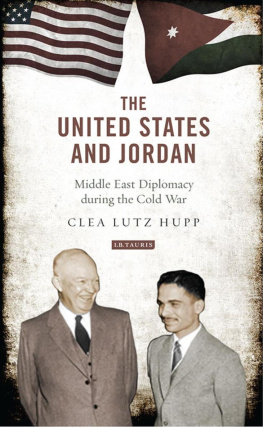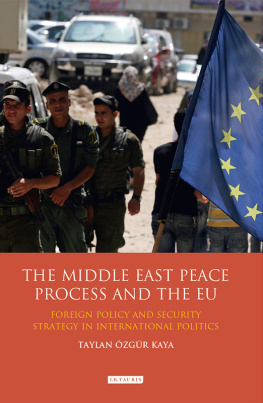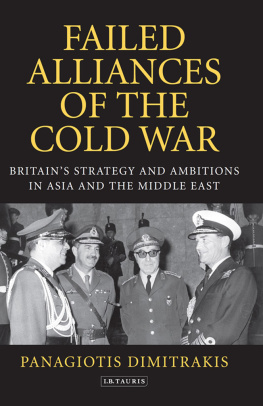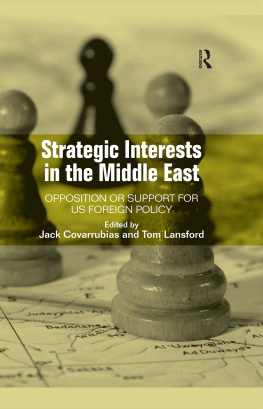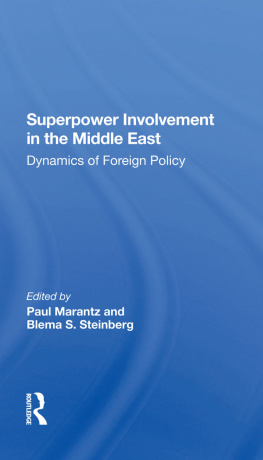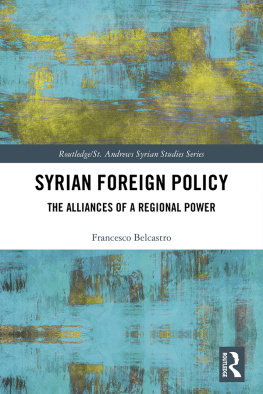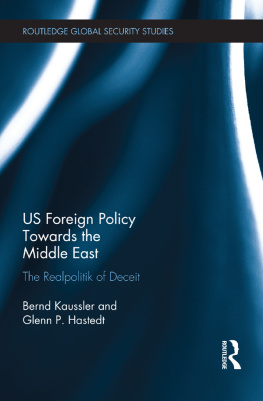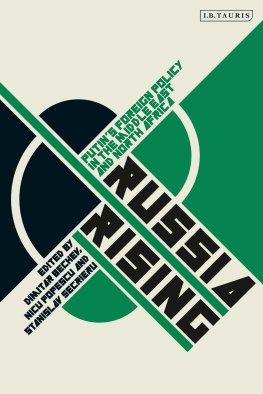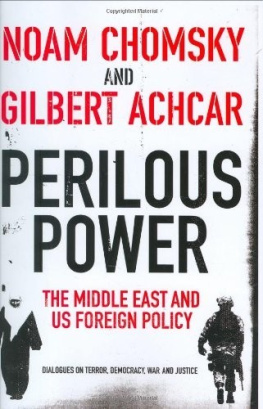Clea Lutz Hupp is Associate Professor at the University of Arkansas, Little Rock. She holds a PhD in History from the University of Arkansas, Fayetteville.

Published in 2014 by I.B.Tauris & Co Ltd
6 Salem Road, London W2 4BU
175 Fifth Avenue, New York NY 10010
www.ibtauris.com
Distributed in the United States and Canada
Exclusively by Palgrave Macmillan
175 Fifth Avenue, New York NY 10010
Copyright 2014 Clea Lutz Hupp
The right of Clea Lutz Hupp to be identified as the author of this work has been asserted by the author in accordance with the Copyright, Designs and Patent Act 1988.
All rights reserved. Except for brief quotations in a review, this book, or any part thereof, may not be reproduced, stored in or introduced into a retrieval system, or transmitted, in any form or by any means, electronic, mechanical, photocopying, recording or otherwise, without the prior written permission of the publisher.
Library of International Relations 65
ISBN 978 1 78076 470 2
A full CIP record for this book is available from the British Library
A full CIP record for this book is available from the Library of Congress
Library of Congress catalog card: available
Typeset by Newgen Publishers, Chennai
CONTENTS
ACKNOWLEDGMENTS
Many people donated their time and talent to assist me with this project. I would like to thank the archive staffs at the Harry S. Truman, Dwight D. Eisenhower, John F. Kennedy, and Lyndon Baines Johnson Presidential libraries, as well as the staff at the National Archives in College Park, Maryland. In particular, Regina Greenwell at the LBJ Library encouraged me to request the review of several document collections that were essential to writing this book and retelling Jordanian history. Several academics have given me helpful feedback in the various phases of writing this book, including George Wallerstein, Joel Gordon, Doug Little, Salim Yaqub, Tore Petersen, Simon Smith, Noa Schonmann, Naguib Ghadbian, Randall Woods, and Mitchell Lerner. Grants from the Truman, Kennedy, and Johnson Libraries provided support for domestic research, and grants from the Middle East Studies program at the University of Arkansas in Little Rock provided funds for research in Jordan. I would like to thank Adnan and Paula Haydar for their persistence and patience in teaching Arabic to graduate students. In addition, I would like to thank Trki Al-Jabaa for his assistance with the nuances of translating Arabic into English.
The American Center of Oriental Research provided a comfortable facility for my work in Jordan and a grant to support my research. I would like to thank the entire staff, and especially director Barbara Porter for her help. Jesse Karnes served as a fearless travel partner, spending more than a few hours with me on the Syrian border. I would like to thank Dr. Bakr Majali for giving me assistance with obtaining interviews in Jordan. Dr. Majali is an excellent historian in his own right and gave me invaluable help with understanding the complexity of Jordanian society and some of the controversies of Jordanian history. Hazem Nuseibeh, Adnan Abu Odeh, Amjad Majali, Fayyez Tarawneh, Samir Mutawi, and Zaid Rifai all graciously granted me interviews and talked about their personal recollections of King Hussein.
On a personal note, I need to thank my children, Jordan and Ariel Bunch, for their tolerance during my absences and for their adventurous willingness to travel abroad, my sister, Melissa Blouin, for her editorial skills that I have exploited many times, and my mother, Julie Lutz, for inspiring me to become an academic. I am grateful to my husband, Bob Hupp, for giving me encouragement and inspiring me with his own creative work and to Dillon, Billy, and Spencer for enriching my world with their own intellectual pursuits. Lastly, I would like to thank the warm, welcoming people of Jordan. Peace be upon you.
INTRODUCTION
The greatest general is he who makes the fewest mistakes.
Attributed to Napoleon Bonaparte
As most researchers in academia, I find my subject unique and fascinating, rather like a parent who dotes over the special characteristics of his or her child. Explaining this fascination for a particular subject can be difficult for a researcher, because it stems from years of scrutinizing documents, interviewing diverse individuals, and becoming familiar with exotic locales. Academics often become so intimate with their subjects that it can be difficult to identify the original source of inquiry, yet I will make an attempt in my introduction to justify this book. I became interested in the Hashemite Kingdom of Jordan because it survived. If one surveys the numerous countries created by the mandate system after the fall of the Ottoman Empire, only one regime of significance survived the twentieth century relatively unaltered. The other major nations of the Middle East suffered from multiple coups, civil wars, foreign invasions, and in the case of Saudi Arabia, one monarchy substituted for another. Jordan is unique because it survived from its creation until the end of the twentieth century with relative continuity in its leadership. The Hashemites of Jordan displayed an almost uncanny ability to survive in the hostile region. This feat then begged the question why? with the important accompanying question of how? This second question drew me into my study of US-Jordanian relations, because it was fairly clear that Jordan needed the assistance of a powerful economic and military patron to survive. In addition, I chose to focus on the period 19481970 because at that time the relationship between Jordan and the United States was poorly defined and uncertain. Over several years, I learned about how the relationship evolved and how the Hashemites survived these few decades while most regimes in the Middle East failed. It should not be surprising to the reader that blind luck played an important part in this survival, but the determination and flexibility of specific Hashemite leaders also ensured the survival of the kingdom. In the end, by studying US-Jordanian relations, I learned much about the successes and failures of US policies in the Middle East.
My study of the Hashemite Kingdom of Jordan exposes the flaws and misunderstandings that plagued US policy in Jordan from 1948 to 1970. Chief among those problems was that policymakers pursued competing goals: the ideological desire to promote self-determination and nationalism as an antidote to communist incursions, contrasted with the practical need to create stability in an area of geo-strategic importance. The qualities that the United States hoped to foster in the region self-determination and stability were inherently incompatible. Yet, because policy makers refused to acknowledge (or more likely did not recognize) this inherent incompatibility, they formulated ad hoc policies that lacked forethought and a true strategic vision, each administration creating a new approach to the region without a realistic picture of what had succeeded or failed in the past. In the end, due to the pressures of the Cold War, American leaders prized stability over self-determination and did not attempt to foster true change that might have led to long-term progress. Missing in the plans, in all the memoranda, position papers, and directives, was a realistic vision of outcome; that is, with all of the economic and military power available to the United States, how the region could be changed through reasonable means to suit American strategic exigencies.

